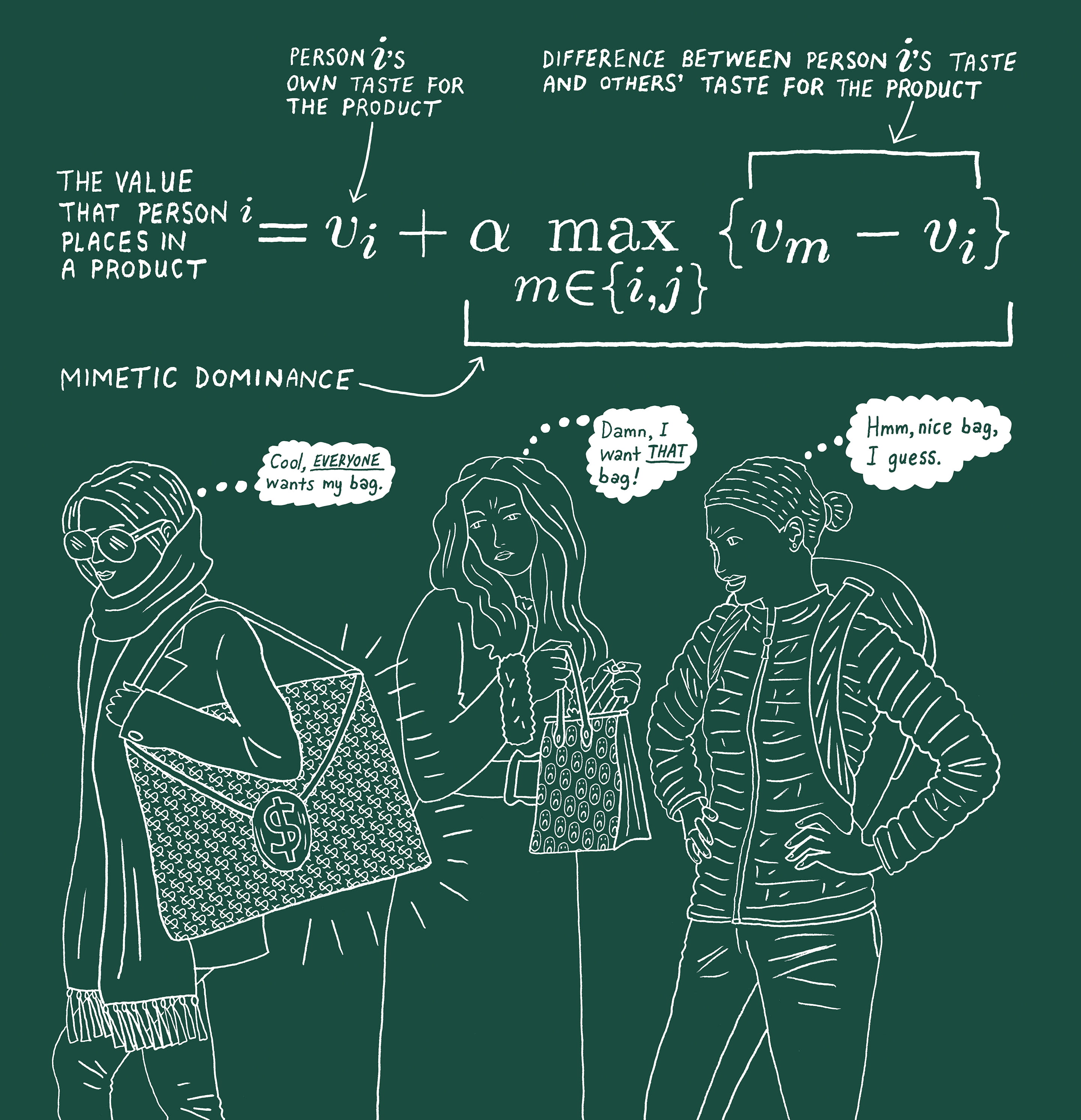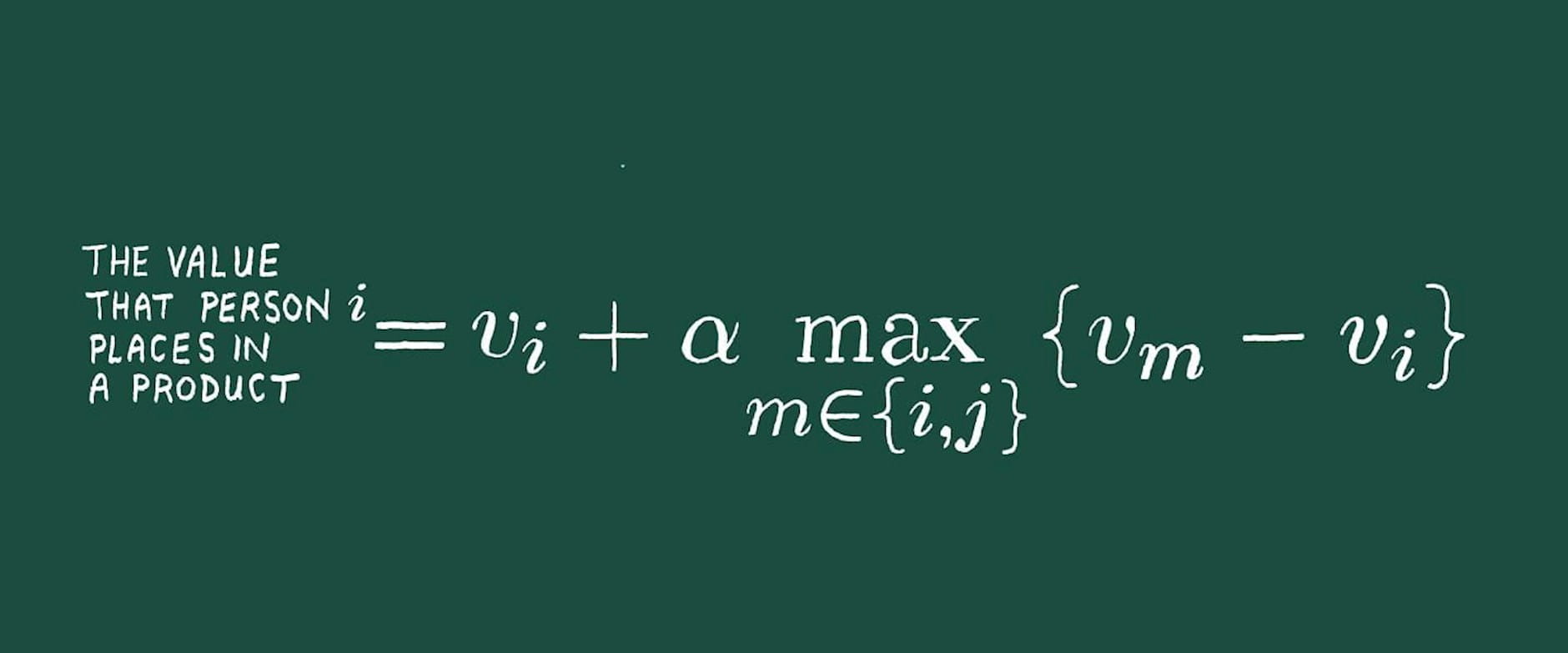Philosophers have long mused about people's craving for dominance and tendency to engage in activities to assert their superiority over others. In consumer choice, this manifests itself as a person's tendency to want what others desire and the feeling of superiority that comes from possessing what others cannot have, according to Chicago Booth's Alex Imas and London School of Economics' Kristóf Madarász. This pursuit of “mimetic dominance” over others can raise people's valuation of a product above their own intrinsic taste for it. In the researchers' model, a consumer's willingness to pay grows as the product's appeal to others increases, but only if others are excluded from purchasing the product. Setting the price of an item above what many consumers can afford—as luxury brands typically do—is one way to exclude potential customers, as is restricting supply, which results in long queues, for example, to get into restaurants or events. Either way, making a product exclusive allows businesses to charge higher prices and extract greater revenues from consumers. To learn more about this research, read “How Human Psychology Explains Exclusive Brands—and Exclusionary Policies.”
The Equation
Adapted from the researchers’ paper, “Mimetic Dominance and the Economics of Exclusion: Private Goods in Public Context”

Illustration by Peter Arkle
the value that person I places in a product equals the mimetic dominance multiplied by the difference between person i's and other's taste for the product plus person i's taste for the product
Alex Imas and Kristóf Madarász, "Mimetic Dominance and the Economics of Exclusion: Private Goods in Public Context," Working paper, December 2020.
Your Privacy
We want to demonstrate our commitment to your privacy. Please review Chicago Booth's privacy notice, which provides information explaining how and why we collect particular information when you visit our website.
